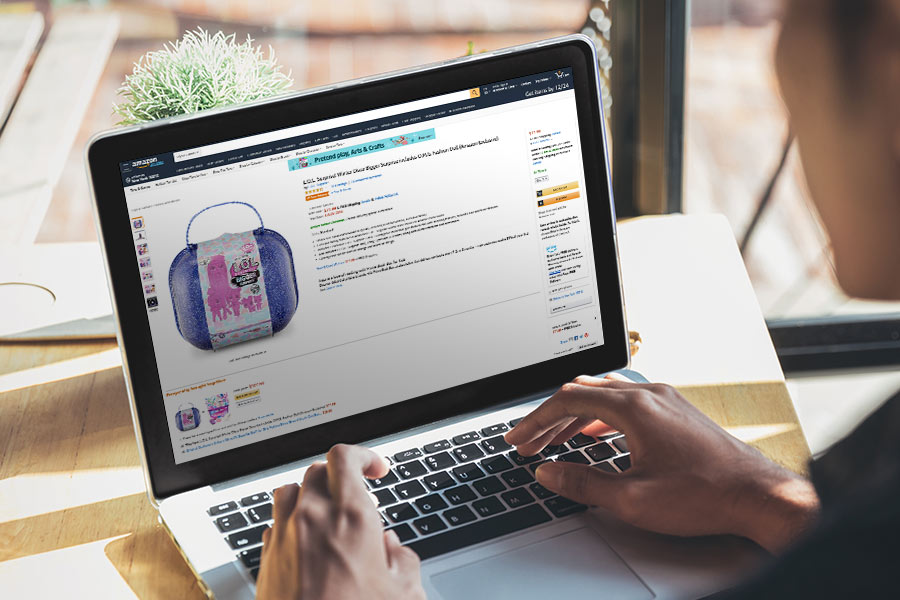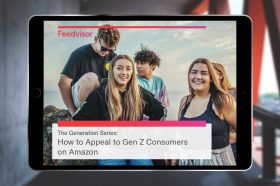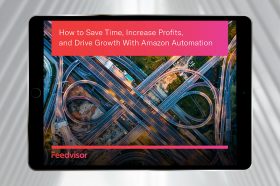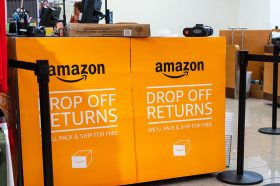Resources - Blog
How to Find the Best Products to Sell Private Label on Amazon

Stay on top of the latest e-commerce and marketplace trends.
Not all private label products are successful on Amazon. These goods, which are manufactured by a third-party manufacturer and sold under your own brand name, have the capacity to put your brand on the map on Amazon. However, they can also perform suboptimally without the proper resources, deep Amazon expertise, and a comprehensive go-to-market strategy. In this post, we detail how you can find products that will bring you private label success on Amazon.
1. Look at what is trending for product ideas.
You can use Amazon as a springboard to help inform your product research and brainstorming process. Given that you will ultimately be selling your products on the platform, go there to gather insights on products. You can start by scouring the following lists on Amazon: Best Sellers, Hot New Releases, Movers & Shakers, and Most Wished For.
In order, these product lists compile the most popular products based on sales, best-selling new and future releases, biggest gainers in sales rank over the last 24 hours, and products most often added to wish lists and registries. You can also manually scan product categories and subcategories to uncover products with potential that are in a specific category you have had your eye on entering.
Additionally, you can keep a running list of product ideas for when you are browsing on other marketplaces or retailer websites as well as when you are shopping in brick-and-mortar retail stores. Social media channels are extremely informative and can help you pinpoint products that consumers are engaging with, discussing, and sharing social proof for that may not have made their way onto marketplaces yet.
2. Narrow that list down to products with high demand and calculate your costs.
Before you invest the resources to have your product manufactured, you will want to be fairly certain that it satisfied a consumer demand and will sell. You will likely want to ensure that you will be able to create recurring demand, so be sure to avoid products with seasonal or volatile sales.
Examine the market to ensure that the product is not inundated with competitors and calculate the potential profit margin and costs involved with sourcing to make sure it is a viable option for your business. You will also want to pick a product category that can be expanded upon in the future.
For example, if you want to be in the health and wellness space and find a yoga towel that has demand, you can eventually build out the brand to include yoga mats, yoga blocks, water bottles, and more. Pick a product that will not silo your expansion capabilities.
3. Think about product specs and attributes that make sense for your supply chain and fulfillment method.
Products that have proven to perform well as private label are “essential,” meaning they do not go out of season and do not tend to follow one-off trends. They are usually small and lightweight, have a shorter manufacturing lead time, and are not cumbersome or complicated, therefore making them easy to fulfill — whether through Fulfillment by Amazon (FBA) or a merchant-fulfilled operation. You will want to source products with a low barrier to entry, at least with your first private label product, and will be able to work your way up to more complex products once you begin seeing sales success.
Additionally, avoid products that fall in categories that require Amazon’s pre-approval, such as specific software and laser products. In general, stick with products that do not require a significant amount of legal paperwork, approvals, or certifications. Be sure that you familiarize yourself with prohibited listings for each category you are considering to avoid any account suspensions or closures in the future.
Particularly if you are sourcing the product from overseas, you will want it to be durable and not something that can be broken or damaged easily in transit. Popular Amazon private label products include water bottles, speakers, flashlights, watches, workout accessories, and beauty products.
4. Put your own spin on the product.
Once you find a product that checks all of these boxes, how can you make it even better than the iterations you have seen? How can your private label brand introduce the best version of this product to the market? When you identify the product you are going to proceed with, determine its competitive features or attributes that will differentiate your product from the rest.
Final Thoughts
Once you have identified a product that demonstrates a clear brand-building opportunity, you can then move on to conceptualize your brand vision, product packaging, and logo, among other assets. By taking the time on the front end to identify a product that will move the needle, you are doing yourself a service by the time you get your products manufactured and launched on Amazon.
Learn what Feedvisor can do for your business.
When you partner with Feedvisor, you automatically receive access to our true, AI-driven technology and hands-on team of e-commerce experts. Contact one of our team members today to learn more about our end-to-end solution for brands and large sellers on Amazon, Walmart, and e-marketplaces.
![How to Maximize Sales Through Amazon FBA [Webinar Recap]](https://feedvisor.com/wp-content/uploads/2019/12/Maximize-sales-through-amazon-fba-2-280x186.jpg)


